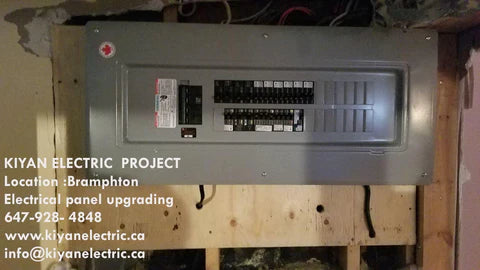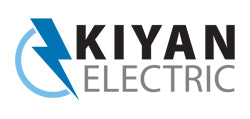How to know if your electrical panel needs an upgrade: 7 Tips

Introduction: Your home's electrical panel is the heart of your home's electrical system, and it's responsible for distributing power to all of the circuits and appliances in your home. It regulates the amount of electricity that flows into your home and directs it to the various circuits and appliances, and it serves as the main point of protection for your home and family from electrical hazards. However, like any other component of your home, your electrical panel can become outdated and overloaded over time, which can lead to serious safety hazards and other issues. Upgrading your electrical panel is an important step in ensuring the safety and efficiency of your home, and it can also add convenience and increase the value of your home. In this article, we will discuss 7 tips on how to know if your electrical panel needs an upgrade
-
Age of the panel: The age of your electrical panel is one of the most important factors to consider when determining if it needs to be upgraded. Most electrical panels have a lifespan of about 30 to 40 years, after which they may become outdated and may not be able to handle the electrical load of modern appliances and devices. If your electrical panel is over 30 years old, it's probably time to consider an upgrade.
-
Frequent tripped breakers or blown fuses: If you find yourself frequently tripping breakers or blowing fuses, it could be a sign that your electrical panel is overloaded and needs an upgrade. An overloaded panel can cause breakers to trip or fuses to blow as a safety measure to prevent overheating and potential fire hazards.
-
Warm or discolored panel: If you notice that your electrical panel is warm to the touch or discolored, it could be a sign of overheating, which can be caused by an overloaded or outdated panel. Overheating can be a serious safety hazard, and it's important to have it checked out by a professional electrician.
-
Difficulty adding new circuits or devices: If you're finding it difficult to add new circuits or devices to your home, it could be a sign that your electrical panel is outdated and doesn't have the capacity to handle the added load. Upgrading your panel to a newer model can help increase the capacity and allow you to add new circuits or devices to your home.
-
Buzzing or sizzling sounds: If you hear buzzing or sizzling sounds coming from your electrical panel, it could be a sign of a problem. These sounds can indicate that there is a problem with the panel or with one of the circuits, and it's important to have it checked out by a professional electrician.
-
No ground fault circuit interrupter (GFCI) outlets: If your electrical panel does not have ground fault circuit interrupter (GFCI) outlets, it's a sign that it is outdated. GFCI outlets are a safety feature that helps protect against electrical shock and electrocution. Upgrading your panel to a newer model can include GFCI outlets which provide an added level of safety.
-
Consult with a professional electrician: In order to determine if your electrical panel needs an upgrade, it's important to consult with a professional electrician. An electrician can perform an inspection of your panel and determine if it's outdated, overloaded, or in need of an upgrade. They can also recommend the best course of action for your specific needs and ensure that the upgrade is done safely and correctly.
Conclusion: Your electrical panel is the heart of your home's electrical system, and it's responsible for distributing power to all of the circuits and appliances in your home. Upgrading your electrical panel is an important step in ensuring the safety and efficiency of your home, and it can also add convenience and increase the value of your home. By keeping an eye out for the signs that your electrical panel may need an upgrade, and consulting with a professional electrician, you can ensure that your home's electrical system is up-to-date, safe, and efficient. Some of the key signs to look out for include the age of the panel, frequent tripped breakers or blown fuses, warm or discolored panel, difficulty adding new circuits or devices, buzzing or sizzling sounds, lack of GFCI outlets, and consulting with a professional electrician.
It's important to remember that working with electricity can be dangerous, and it's always best to consult with a professional electrician before attempting any work on your electrical panel. An electrician can provide expert advice, help you to determine if your panel needs an upgrade, and ensure that any work is done safely and correctly. By taking the time to upgrade your electrical panel, you can help keep your home and family safe, save money on energy costs, and increase the value of your home.

